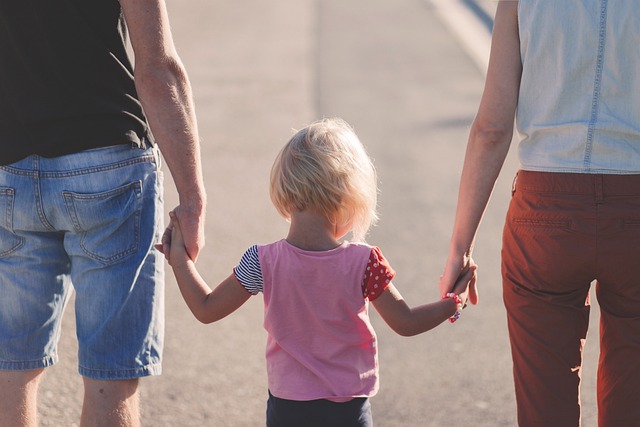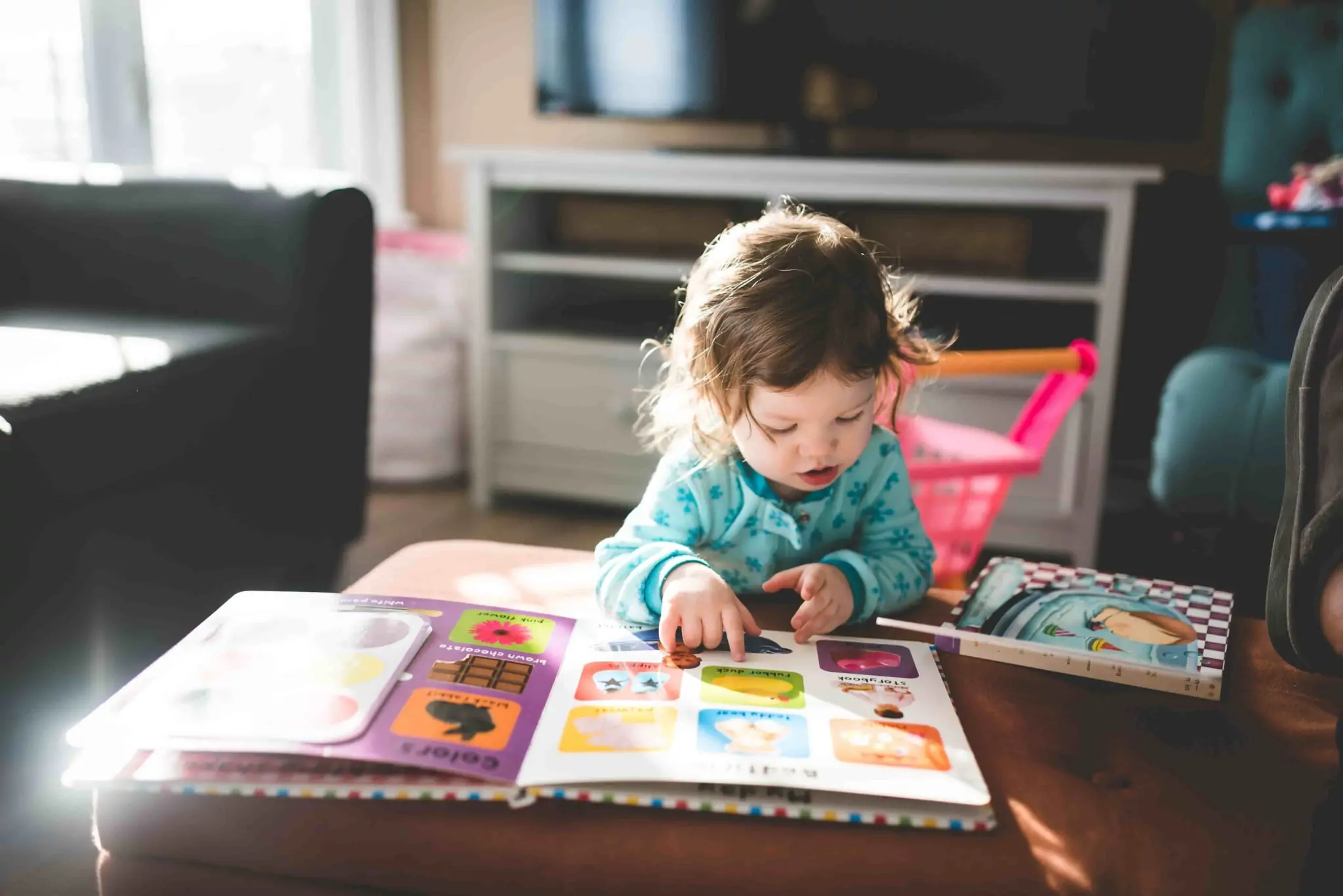This post contains affiliate links. It means that if you click on the links and make a purchase, we will receive a small commission at no additional cost to you. This allows our blog to continue providing you with free information. We only include links and products that we truly believe in. You can read the full disclosure here.
Moving to Germany or new in Germany? Check out our Resources Page for all the help you need!
Ever wondered what the German parenting style is like? Compared to how I grew up in Hong Kong, it’s like a whole different world of raising kids. And I’m excited to share some cool insights with you. In Germany, they’ve mastered the art of teaching independence, responsibility, and having super open chats with their little ones. It’s a parenting adventure, and we’re diving in to discover what makes it so special!
Table of Contents
ToggleIntroduction
Back in my hometown Hong Kong, things were quite different for me. If I misbehaved as a kid, I’d often end up getting physically punished. While our physical needs were taken care of, there wasn’t much emotional closeness with my parents. They were more like authority figures, you know?
When I moved to Germany, I remember chatting in a pub with some other German people during my first year. I casually mentioned that if I had kids in the future, I’d use physical punishment if they misbehaved. Well, everyone was shocked! Turns out, nobody there had experienced getting physically punished as kids. It was a whole new world for me.
I couldn’t wrap my head around it. I asked, “If you don’t give kids a little smack, how do you discipline them?” They explained it’s all about talking, understanding, and finding consequences that aren’t physical, like not going out to play or staying in their room.
Later on, I visited my husband’s aunt, where they had three kids – ages three, six, and nine. I was blown away by how affectionate they were. Lots of kisses, kids loving their parents, and even when misbehavior happened during breakfast, it was calmly handled.
The mom just sent the kiddo to their room for a bit. And after apologizing, they continued eating. No yelling, no physical punishment – it was a whole new parenting style.
This is how I first discovered German parenting, and now I want to share with you what I’ve observed over the years. It’s been eye-opening for me, especially considering my experiences growing up in Hong Kong.
What are the secrets of the German parenting style?
1. Emphasis on independence from an early age
The German parenting style is quite different from what I was used to in Hong Kong. Here, kids are taught to be independent from a very young age. For instance, they’re encouraged to do things on their own, like preparing food, dressing up, or putting on their jackets.
Imagine this scene: Little Mia is proudly spreading her own peanut butter on bread.
Sure, there might be a bit of a mess, but the sense of accomplishment radiating from her face is priceless. German parents believe that these early experiences build resilience and a can-do attitude that will serve their children well in the future.
It’s not just about the practical skills, though. Independence in German parenting means allowing kids to make choices and learn from their decisions.
So, when young Lukas insists on wearing mismatched socks or choosing a peculiar combination of foods for lunch, the German parent smiles and lets him express his individuality.
It is not always easy
It sounds great in theory, but as a parent myself, I know it’s not always easy because, let’s be honest, sometimes it’s just quicker and easier to do things for the kids.
For example, it might take forever for a child to put on a T-shirt or a jacket by themselves, whereas if I help her, it’s done in seconds.
It’s tempting for parents to step in and do things for their kids, but on the flip side, if you let them take their time and do it themselves, they’ll get faster and better at it over time. In the long run, it actually becomes easier for parents.
Putting on jacket
I remember when I used to ask my kid to put on their jacket, it would take minutes. But now, after letting them do it on their own, they can get ready in just 19 seconds.
It’s a win-win. Not only does it make things faster for us as a family, but it’s also great for their curiosity and confidence. Kids actually want to learn how things work and feel a sense of achievement when they do things on their own.
Feeding vs. baby-led weaning
Another example. I’ve been practicing baby-led weaning for both of my kids since they were six months old. Instead of spoon-feeding them, as many parents do initially, I gave them finger foods.
Admittedly, it wasn’t the easiest in the beginning because they made a mess everywhere – on the floor, on the table, and even on their little heads. It was a bit chaotic compared to just spoon-feeding them, which is definitely quicker and simpler.
However, I truly believe there are numerous benefits to baby-led weaning. Both of my kids have become very independent eaters from a young age.
When I visited Hong Kong with my older daughter when she was 11 months old, she was happily eating all by herself at a restaurant. We cut her food into the right size, and she sat there, handling everything on her own.
My family in Hong Kong was impressed, asking how she became so independent. They shared that some kids in Hong Kong, even at 4 or 5 years old, still need to be fed all the time.
I think, in the long run, encouraging kids to learn to do things by themselves is better for parents. If you’re not familiar with baby-led weaning, I highly encourage you to check it out and see if it might be something you’d be interested in trying. It’s been a game-changer for our family!
The difference in parenting style
As mentioned, German parenting styles focus on independence from an early age. On the other hand, in Hong Kong, where I grew up, having a maid is common. And they usually want to get things done quickly.
They end up doing everything for the kids, from cooking to tidying up. This can make the kids lazy and not very independent. They become reliant on others to get things done and often don’t care to do it themselves.
So, I believe that the German parenting style, encouraging independence from a young age, is better. It’s good for the family, the kids, and the parents in the long run. It nurtures a sense of responsibility and confidence in children, making them more capable individuals in the end.
German kids grow up to be financially independent from their parents
The German parenting style focuses on making kids independent, and this includes financial independence too when the kids grow up.
Unlike in Hong Kong or China, where parents commonly help their kids with things like buying a house or wedding expenses, in Germany, everyone is independent.
As kids grow up, they become financially independent, meaning they have to find their own way to pay for things like vacations, weddings, or buying a house.
Unlike in Hong Kong, German parents typically don’t financially support their adult children in these situations. This is a key difference I’ve noticed in the parent-child relationships between Hong Kong and Germany.
2. Teaching responsibility and self-reliance
Let me share another cool aspect of the German parenting style– they not only encourage independence but also introduce a strong sense of responsibility in their kids from a young age.
Picture this: little ones as young as 5 or 6 confidently walking to school on their own.
When I first witnessed this, I admit, I had a moment of concern. But in the small town where I live in Germany, it’s actually very safe. The kids walk to school on their own, some even take the train solo – it’s pretty impressive.
Read also: Einschulung – Starting School in Germany
Kids learn from the consequences
Here’s the thing – these kids are responsible for themselves. They pack their own school bags, and if they forget something, well, it’s a lesson learned. No parent stepping in to fix it.
I’ve applied a similar concept to my own kids. Now, they carry their own school bags. Initially, there was some resistance, a bit of drama – they’d put the bag on the floor, saying they didn’t want to carry it.
But I stood my ground. I told them that they could leave their school bag on the ground and they could then go to school without the bag that day. Eventually, they gave in. After a month or two, they got the hang of it and now carry their school bags independently.
It’s not just about school bags; it extends to everything – forgetting water bottles, jackets, you name it. At first, I worried about how they’d manage without these things, but then I realized it was a crucial lesson. They need to face the consequences of forgetting.
My 6-year-old used to forget stuff all the time. But now, she has learned from those experiences. If she forgets her art supplies for school, she misses out on the fun of creating art with her classmates. So, she has become more responsible and even reminds me when there’s something she needs to bring.
German Parenting Style – Household Responsibility
Responsibility isn’t just limited to personal belongings. German parents teach their kids to be responsible for the house too. Even the little ones contribute – after meals, they bring their plates and silverware to the kitchen or dishwasher. They water their own plants, clean up their toys, and pitch in with housework. It’s like a team effort. And everyone, regardless of age, plays a part.
Now, if my kids ever resist cleaning up after playing, I have a little trick up my sleeve. I tell them if the toys aren’t cleaned up, they’ll magically disappear – a trick I learned from German parenting.
It happened once, I hid all the toys in the basement. And the next day, there was a bit of a crisis. But guess what? Since then, my kids are good at tidying up after themselves.
So, you see, kids are smart. They learn from consequences. And we, as parents, need to let them steer their own ship. That’s the German way – fostering independence and responsibility in the coolest, most effective way possible!
3. Focus on communication
Let’s chat about another awesome aspect of parenting style in Germany – the emphasis on open communication between parents and children. In German families, they’re like communication pros! They really value having conversations because it’s super important to understand each other, talk, and connect.
For example, when the kid comes back from school and has a snack, the parents dive into questions like, “How was your day? What’s the high point and low point? Anything making you happy or not so much?” They encourage their little ones to share their feelings from a young age, even before the kids can fully express themselves.
And get this – it’s not just about big things; it’s about the little stuff too, the everyday happenings. It’s such a great habit because it makes the kids feel comfy to have regular chats.
The parents are like the mentors
The parents listen without any judgment, creating this trusty bond. The kids feel heard, valued, and understood. The parents actively listen, taking the time to understand things from the kids’ perspective.
They might sit down, throw out some open-ended questions, and share thoughts and feelings. It’s a fantastic approach that helps the family emotionally connect and ensures the kiddos learn how to express themselves – a crucial life skill.
The mutual respect
One super cool thing is the mutual respect. Both parents and kids feel at ease sharing thoughts and concerns. It’s awesome because, unlike some places where kids might get the “You’re just a kid, listen to us” treatment, in Germany, everyone’s opinions are considered. Parents don’t act like authority figures but instead, give advice, share opinions, and understand the kids’ perspective.
When I see how my German husband interacts with his family, it’s eye-opening. They communicate with such respect. The parents don’t order the kids around, but rather discuss, advise, and understand their point of view.
It is so different than my personal experience in Hong Kong
It’s a whole different ballgame from how I grew up in Hong Kong, where parents often made all the decisions, including the future career choices of their kids.
I still remember my friend from middle school in Hong Kong who had to switch to science back then even if she loved history just because her parents insisted.
Growing up in Hong Kong, my mom didn’t treat me with the same respect as adults. For example, she would enter my room without knocking or asking, and sometimes she would go through my personal belongings like notebooks and papers.
Personal space wasn’t always respected. I’m not sure if this was unique to my experience or common among parents there.
However, in Germany, things are different. Parents here treat their kids with respect, even though they’re children. They engage in conversations, answer their questions, and acknowledge their personal belongings.
Unlike simply discarding their toys or belongings, German parents discuss and ensure decisions are made together with the child. It’s a more respectful and considerate approach to parenting.
The open communication in German families is a game-changer. They value family time, especially during meals. Unlike my dinner experiences in Hong Kong, where the TV was always on, drowning out any chance for a chat, in Germany, dinner is a time for everyone to sit down, eat together, and talk about their day. It’s a parenting style that’s way more communicative and connected than I could have imagined when I was younger!
4. Honesty and directness in conversations
Another cool thing about how Germans raise kids is that they always talk straight – no beating around the bush. If a kid asks a question, they don’t try to avoid it or think it’s silly. Even if they don’t know, they’ll look it up and give a serious answer.
Here’s a story: My teacher in Germany had a 5-year-old who loved asking tricky questions like, “Why is the ocean blue?”
Even if my teacher didn’t know, she’d hit the internet and explain it in a way the kid could understand. No “I don’t know” or “Why are you asking?” – always taken seriously.
German parents do not avoid difficult questions
It’s not just easy questions. When it’s time for the inevitable conversation about how babies are made, German parents dive in, explaining things honestly and at the kid’s level.
When I think about my childhood in Hong Kong, it was different. My parents would avoid those talks and change the subject or send me off for answers.
Here’s why I appreciate the German approach. When parents treat every question with seriousness, kids develop trust. They become more open, freely expressing themselves without fear of judgment.
Fears, mistakes, worries – it’s all on the table because they’re not afraid of their parents. It creates an open environment where communication flows naturally.
You know Germans – they’re known for being straightforward. So, that’s the German parenting style, where honesty and straight talk are the name of the game. Quite different from the more reserved style I experienced growing up in Hong Kong!
Read also: Baptism in Germany – All you need to know about Taufe
5. Emphasis on Outdoor Activities
Let’s talk about another cool thing in German parenting style – they’re big on outdoor activities. It’s not just a preference; it’s like a way of life. German parents want their kids to get out there and enjoy nature, and it’s a big deal.
Back in Germany, when my kid was in kindergarten, they had this awesome routine. No matter the weather – rain, snow, you name it – they’d have outdoor time every single day.
The Germans have this saying, “There’s no bad weather, only bad clothing.” It means there’s no excuse not to go outside. So, we all had to make sure our kids had waterproof everything – clothes, shoes, hats – so they could go out and play in any weather. My kid would come home, sometimes covered in mud, but always with a huge smile.
Now, when I moved to the US, it was different. People here were amazed that we had such excellent waterproof gear for the kids. Over here, if it’s raining, they might keep the kids indoors.
I get it – it’s easier for parents. I mean, every time I picked up my kid in Germany, I’d look at her clothes and think, “Oh no, here we go again with the laundry.” It’s more work for parents, but it’s so good for the kids.
Read also: Childcare in Germany – Kita and Other Options
My kids love insects.
Take my younger one, for instance. In Germany, she was outside every day, exploring and loving it. She’d sit on the ground, fascinated by insects – ants, ladybugs, spiders – you name it. She wasn’t afraid at all, unlike me.
It’s funny how kids can be so different from their parents. We’d also spend weekends as a family, hiking, climbing trees, collecting leaves, and playing in puddles – the full outdoor experience.
Kids like to play with sand in Germany
As my kids played in Germany, we embraced another fun aspect – in Germany, almost every playground has sand!
In Hong Kong, playgrounds don’t usually have sand because parents worry about kids getting messy and it’s hard to clean. But in Germany, kids could play on the sand, and many even preferred going barefoot.
I recall the shock on my mom’s face from Hong Kong when she visited us in Germany. Seeing kids wandering around without shoes seemed unthinkable to her, pointing out potential dangers like scars or injuries.
However, where we lived in Germany was exceptionally clean. It wasn’t an issue to stroll around barefoot. I understood my mom’s concerns, given that in Hong Kong, it’s nearly impossible to have such clean conditions. There, broken glass or debris on the streets is common, making it unsafe to walk barefoot.
But this is the beauty of Germany – a deep love for nature, where walking on streets, playground sand, or grass with bare feet is a cherished experience. Initially skeptical, I gave it a try, and walking on grass barefoot turned out to be an amazing and refreshing feeling.
Parenting style – Germany vs. Hongkong
This outdoor love is pretty common for German kids. It’s a different story in Hong Kong, where I grew up. I don’t recall climbing any trees there – it’s a city, you know, less nature in the city center.
Germans, on the other hand, love picnics and spending as much time outdoors as possible. When I was growing up, the focus wasn’t so much on outdoor activities. Instead, it was more about indoor stuff – learning things, taking classes, and focusing on academics.
But in Germany, they really emphasize learning outside. Even when the kids are playing, they’re learning about weather, leaves, insects, and animals. It’s an interesting twist that I’ve come to appreciate. Outdoor learning is the name of the game, and I think it’s fantastic.
Read also: 13 Tips for Working From Home with a Toddler
Conclusion
And that’s a wrap on the cool world of German parenting style! So, what have we learned? Well, they’re all about letting kids do things on their own, teaching them responsibility, chatting openly, being super honest, and, of course, enjoying the great outdoors. It’s like a parenting adventure every day!
Whether you’re a parent, soon-to-be parent, or just curious, there’s always something new to learn from the diverse approaches to raising happy, confident, and responsible little humans.
Happy parenting adventures to all!
Pin it for later:

What do you think about the parenting style in Germany? How is it compared with your home country? Leave a comment below and share your insight
Moving to Germany or new in Germany? Check out our Resources Page for all the help you need!
If you found this article helpful, consider supporting this website by buying me a coffee. Every small donation helps to keep this blog alive. You can also ask me any questions here. Buy me a coffee







